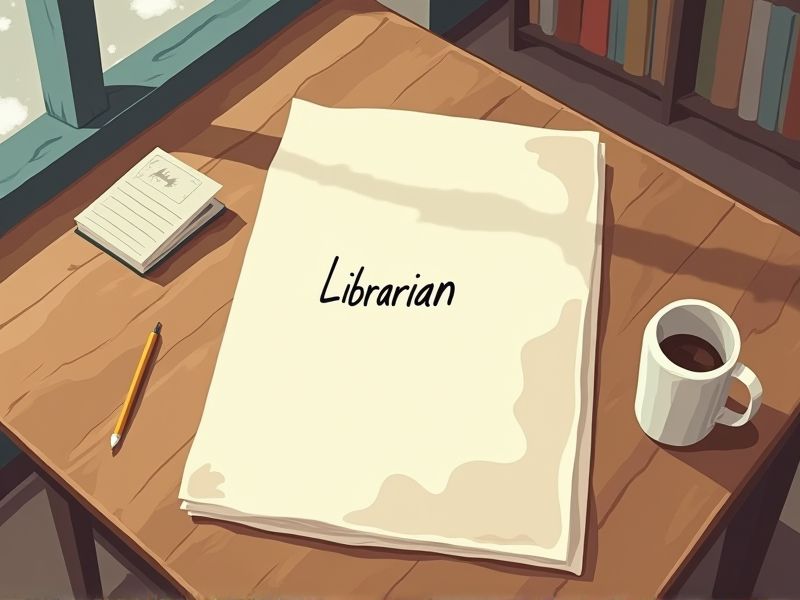
Librarians manage vast amounts of information and ensure its accessibility to patrons, requiring a blend of skills and knowledge. Certification validates their expertise in areas such as information organization, digital literacy, and research methodologies. These credentials support librarians in adeptly handling evolving technological landscapes and diverse user needs. Essential certifications for librarians include specialized areas that enhance their professional capabilities.
Certified Public Library Administrator (CPLA)
Certified Public Library Administrator (CPLA) credentials provide librarians with advanced managerial skills, which enhance their leadership capabilities in a library setting. With CPLA certification, librarians acquire knowledge in areas such as budgeting and personnel management, fostering more efficient operations. Libraries benefit from administrators who possess specialized training, which can lead to improved services and patron satisfaction. As libraries evolve with technological advancements and changing community needs, certified administrators ensure they remain relevant and responsive.
Certified School Librarian (CSL)
A Certified School Librarian (CSL) ensures students have access to a diverse range of resources, fostering critical thinking and information literacy. Evidence shows certified librarians positively impact student achievement, as they effectively integrate library services with the curriculum. Training through CSL programs equips librarians with strategies to manage digital and traditional resources, supporting both students and teachers. Schools with CSLs see improved literacy rates and better-prepared graduates, reflecting increased educational outcomes.
Certified Reference Librarian (CRL)
Certified Reference Librarians (CRLs) enhance information retrieval processes, leading to more efficient library services. They possess specialized knowledge in research techniques, which results in improved user satisfaction and engagement. Their skills in digital resources management support the library's adaptation to evolving information technology. CRLs ensure that library services maintain a high standard, adhering to best practices and ethical guidelines.
Digital Archives Specialist Certification (DAS)
Obtaining a Digital Archives Specialist Certification equips librarians with essential skills in managing and preserving digital records, ensuring these resources remain accessible over time. This certification enhances a librarian's ability to implement best practices in digital curation, thereby safeguarding valuable information assets. Libraries increasingly transition to digital collections, making proficiency in digital archiving crucial for maintaining the integrity and continuity of these resources. The DAS certification increases a librarian's professional credibility, providing a competitive edge in the evolving field of information management.
Certified Records Manager (CRM)
Implementing a Certified Records Manager (CRM) for a librarian enhances the organization's ability to manage records efficiently, ensuring accurate indexing and retrieval of information. CRM certification equips librarians with specialized skills in compliance and risk management, crucial for safeguarding sensitive data and adhering to legal requirements. With a CRM, librarians gain expertise in digital recordkeeping, leading to improved management of digital assets and a reduction in data loss. This certification empowers librarians to implement best practices in records management, thereby increasing the integrity and accessibility of institutional knowledge.
Certified Information Professional (CIP)
The rise of digital content in libraries necessitates certified information management skills, making a Certified Information Professional (CIP) important for librarians. CIP certification demonstrates expertise in organizing and managing both physical and digital information, enhancing library efficiency. Libraries are evolving into data-driven environments; thus, a CIP aids in implementing information governance strategies effectively. Information security concerns demand that librarians possess updated knowledge, which a CIP credential helps to ensure.
Information Literacy Credential (ILC)
Librarians with an Information Literacy Credential (ILC) can more effectively guide patrons in navigating and evaluating vast digital and physical information sources. The ILC equips librarians with standardized skills to teach critical thinking and digital competencies, which are increasingly essential in today's information-rich environment. By holding an ILC, librarians demonstrate their commitment to professional development and staying up-to-date with evolving information technologies and methodologies. Employers and library institutions value the ILC as it ensures a consistent level of expertise, enhancing the overall quality of library services offered.
Certificate in Library and Information Science (CLIS)
Institutions require a Certificate in Library and Information Science (CLIS) because it ensures librarians possess foundational knowledge in managing information resources. A CLIS equips individuals with essential skills in digital cataloging, which increasingly dominates library systems. The certification gives a standard understanding of copyright and intellectual property laws that librarians must navigate daily. Obtaining a CLIS often increases employment prospects, as it demonstrates a commitment to maintaining relevant professional competencies.
Project Management Professional (PMP)
Having a Project Management Professional (PMP) certification equips a librarian with structured project management skills, essential for handling large-scale library projects such as digitization initiatives or facility upgrades. By ensuring appropriate resource allocation and timeline adherence, it enhances the efficiency of library operations and services. A PMP-certified librarian can also better manage cross-departmental collaborations, fostering more effective communication and teamwork. This certification further aids in strategic planning and budgeting, ensuring library projects are aligned with organizational goals and available resources.
Certified Library Technologist (CLT)
Certified Library Technologists (CLTs) bring specialized skills critical for managing modern library systems and digital resources. Their expertise ensures the smooth operation of library technologies, improving both efficiency and user satisfaction. As libraries transition from traditional to digital platforms, CLTs provide essential support in cataloging and data management. Employing CLTs helps librarians focus on curating content and community engagement.
Summary
You gain enhanced skills and knowledge, increasing your expertise and value in library services. Certified librarians often find improved career opportunities and higher salary potential. Institutions benefit from your certifications as they can offer more advanced and relevant services to their patrons. Certification also leads to greater professional recognition and credibility within the librarian community.
